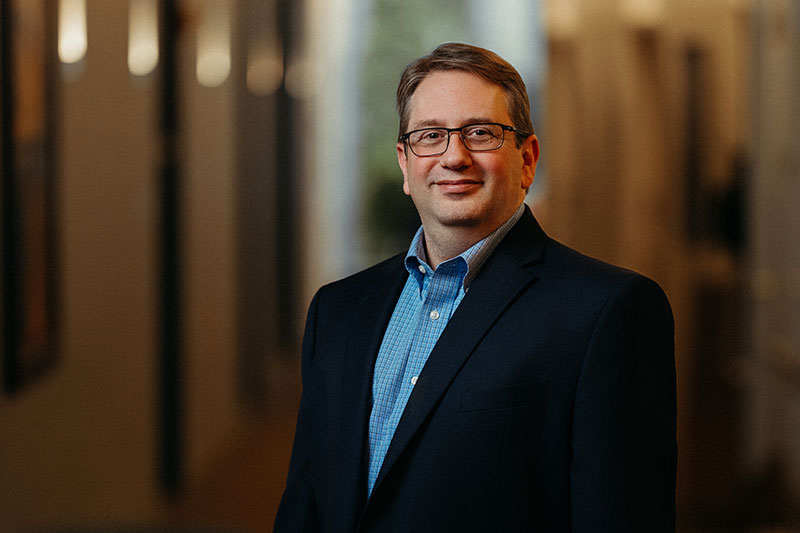Matthew Huber - 2023 Herbert Newby McCoy Award

2023 Hebert Newby McCoy Distinguished Lecture
The history and future of a hot world
Biography
Matthew Huber, the David E. Ross Director of the Purdue Institute for a Sustainable Future and professor of earth, atmospheric and planetary sciences, has been chosen to receive the Herbert Newby McCoy Award for outstanding work in the natural sciences.
Huber’s research focuses on global modeling of past, present and future climate conditions as well as climate’s impact on human settlements, managed landscapes, and natural land, ocean and cryosphere ecosystems. His work is helping to explain the physical processes that generate tropical “thermostats” as well as the amplification of warming at the north and south poles, and the environmental, economic, ecological and evolutionary implications of these processes. He is specifically examining the human health and economic impacts under different future greenhouse gas emission scenarios.
“Professor Huber’s scholarship has been internationally recognized for its far-reaching global conclusions on the effect that human activity will have on the Earth’s habitability, resilience and sustainability on long-time horizons,” said Greg Michalski, professor of earth and atmospheric sciences, and analytical chemistry, in nominating Huber for the honor. “His recent achievements in the field of the Earth’s climate — past and future — have had major scientific and societal impacts.”
Huber, who was given the College of Science Research Award in 2022, also received the Atmospheric Sciences Ascent Award from the American Geophysical Union in 2018. The annual Ascent award recognizes excellence in research and leadership in the atmospheric and climate sciences.
Huber says he is honored to have been singled out for the McCoy award.
“I am deeply grateful for this recognition, and thankful to my research team and collaborators who conducted the research, and to my colleagues who supported my nomination,” he said. “But I am most gratified by this award as a concrete recognition by Purdue University that climate change is a real and present danger.”
Huber, who has published over 130 journal papers with more than 14,800 citations, said he is looking forward to the problem-solving stage of his future work. “One can only solve a problem by first defining it properly. Much of my work up to this point has been identifying the unique vulnerabilities of various regions to increasing heat stress — the next phase will be using this knowledge to build out solutions.”
After receiving a doctorate in earth sciences in 2001 from the University of California, Santa Cruz, Huber joined Purdue as an assistant professor in the Department of Earth, Atmospheric, and Planetary Sciences in 2003. He was promoted to associate professor in 2007 and became a full professor in 2011.
Abstract
The world has warmed many times in the past and it is doing so again. This time the heating is more rapid than at any other time in the past 65 million years and people are responsible. My work has emphasized using information from past warm climates to help us understand how well physics-based climate models capture major climate changes and therefore how much we should believe their future predictions. We now understand that the tropics are very susceptible to global warming and can get hot and humid enough to broadly threaten human ability to work, wellbeing, and health as well as those of other mammals. In my most recent research with collaborators at Penn State University, and with my PhD student Qin Qin Kong, we have demonstrated that the world is much closer to a threshold for human health than previously conjectured. The implication is that hundreds of millions of people, largely in low-to-middle income countries in the tropics and subtropics, will face serious heat-related threats if global warming gets beyond 2°C, and the exposed population increases nearly exponentially with each degree of warming. Major technological and engineering solutions need to be developed and implemented in these regions immediately so that solutions are rolled out in time.

